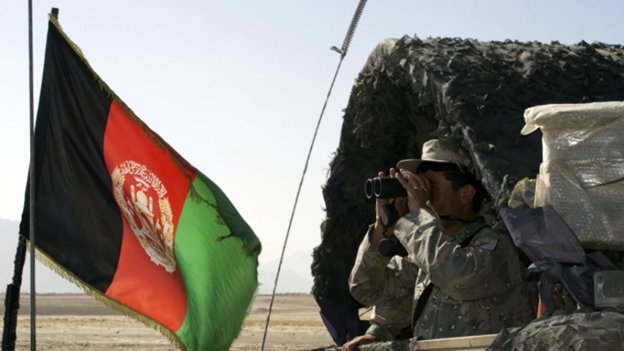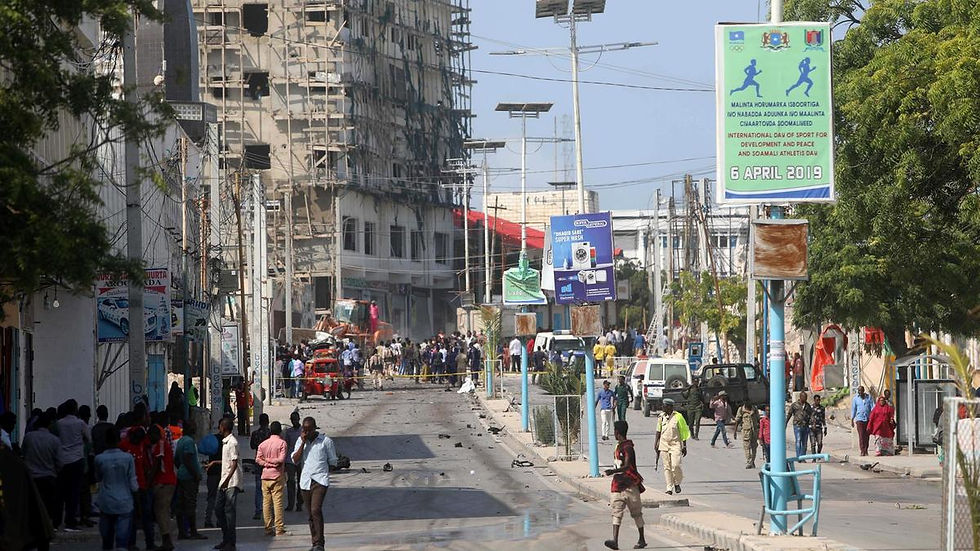Afghan refugees: The impact of the Afghanistan conflict on Europe
- Tania Rey García

- Aug 15, 2021
- 3 min read
The "baton" of the Afghan conflict goes from American to European hands, but in this case, both powers do not seem to be on the same team. The withdrawal of US troops in the country and the advance of the Taliban will pose a challenge for European countries that will have to take in the Afghan “refugees” who leave the country in the hope of survival. US efforts to help Afghans fleeing their country appear to be insufficient and the European Union will be the next responsible for receiving these Afghan refugees.

"A member of the Afghan border police during the road cleaning training course at the Kabul Military Training Center." Source: NATO. (Photo taken by Royal Canadian Air Force Captain Alexandre Cadieux)
The United States and the European Union's role in the conflict of Afghanistan.
Following the announcement of the withdrawal of US troops, the country has pledged to provide asylum and aid to Afghans who collaborated with the army in the fight against the Taliban. The US government is already processing thousands of visa applications from interpreters, drivers, and other Afghans who have helped their soldiers and who want to move to the United States with their families. Their goal is to help them leave Afghanistan before the end of August.
As EFE explains, the State Department announced a new program, known as "Priority 2," which includes employees of US contractors, local personnel from the US embassy or military bases, as well as interpreters from the US government, its troops, or those of NATO. It is also open to those Afghans who worked as journalists or other employees of an American outlet, in addition to aid workers from non-governmental organizations in the United States.
However, the program has quite a few limitations: Afghans who wish to leave the country to begin the asylum application process must do so on their own, without US assistance. Despite the expansion of the program to host refugees from Afghanistan due to Taliban violence, it is not clear that these efforts are enough to bring Afghan citizens to safety. The question is: what will happen to the rest of the Afghan civilians who suffer from the terrorist occupation and need to flee the country?
Europe "comes into play" in the conflict of Afghanistan.
Some countries, such as Turkey and Iran, have hosted refugees but their stay in these countries has an expiration date. If they are expelled, they have to seek asylum in other countries that do not expel them.
Six EU member states have warned the executive bloc not to stop deportations of rejected Afghan asylum seekers arriving in Europe despite significant advances by Taliban militants in their country. The Migration Minister of Greece, Notis Mitarachi, has declared: "The EU is not prepared and does not have the capacity to face another great migratory crisis", adding "it would be a call for more people who want to come to the EU". Austria, Belgium, and Denmark have supported Mitarachi in his proposal to deport the migrants. However, not all EU positions are equally rigid: Germany and the Netherlands have finally decided not to deport Afghan refugees for now, as the war remains.

"A displaced Afghan family who left their home during the conflict between the Taliban and the Afghan security forces." Source: AFP
Since 2015, around 570,000 Afghans have applied for asylum in the EU, and 44,000 just in 2020. Many EU member states are concerned that these events in Afghanistan could trigger again the 2015/16 European migration crisis when the chaotic arrival of more than a million people from the Middle East altered the security and welfare systems, especially in countries like Greece.
On the other hand, according to EuroEFE, “the European Commission is not afraid that the complicated situation in Afghanistan, where the Taliban have captured seven provincial capitals in less than a week, will provoke a new migration crisis of the magnitude of 2015 as a result of the Syrian crisis. Indeed, the Commission considers that the scenario in the Asian country is difficult, but not desperate.
The Commission has confirmed receiving the letter from the six countries, adding that it would respond when it was ready. After asking a Commission spokesperson if he considers Afghanistan to be a safe country to which asylum seekers can be returned, he replied that it is up to the Member States to make such a judgment. The issue is expected to be addressed at a crisis meeting of EU internal affairs ministers on August 18, which originated primarily to discuss an increase in illegal border crossings from Belarus into Lithuania, Poland and Latvia.
However, the EU does fear to a greater extent, a rapid deterioration of the humanitarian crisis that the country was already experiencing before the recent Taliban offensive, with around 18.4 million people (45% of the population) in need of humanitarian aid. bin early 2021.


Comments